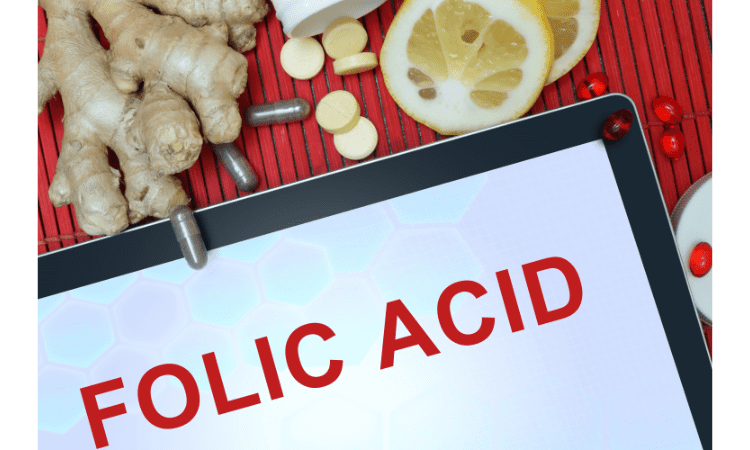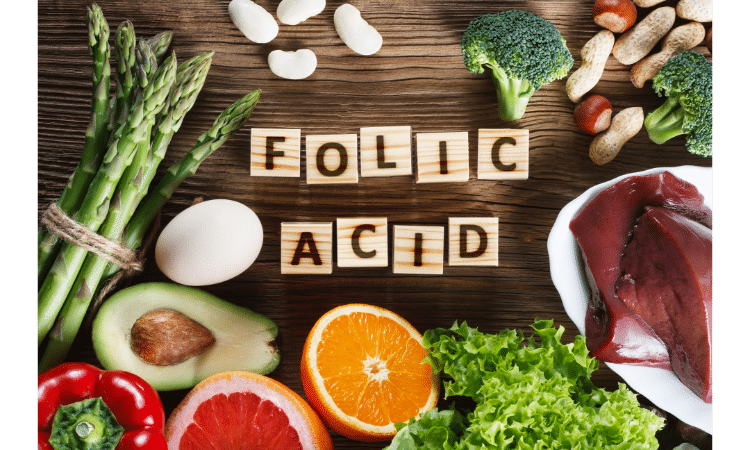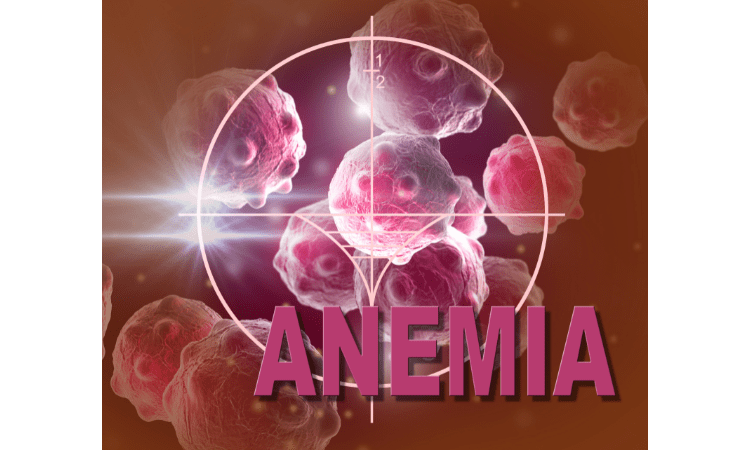
Folic acid is a vitamin that helps your body produce and maintain new cells. It’s also essential for preventing neural tube defects like spina bifida, which can cause paralysis and other problems.
In some cases, folic acid supplements can help prevent birth defects in infants. But it’s important to know that not everyone needs to take folic acid supplements. If you’re pregnant or trying to conceive, make sure you talk with your doctor about whether or not you need to take it.
About Folic acid

Folic acid is a B vitamin that helps your body make and maintain new cells. It is an essential vitamin that’s found mainly in leafy green vegetables and legumes. It helps your body make healthy red blood cells, which are necessary for carrying oxygen to the rest of your body. It’s also important for the health of your brain and nervous system and helps in the production of DNA. Some people have a hard time absorbing folic acid from food, so they need to take a supplement.
Source of Folic acid

Folic acid is the synthetic form of folate, an essential B vitamin. Folate is naturally present in foods such as leafy green vegetables, beans and peas, strawberries, asparagus citrus fruits, orange juice, fortified cereals whole grains, yeast, and organ meats.
How much do we need folic acid every day
There are two types of folic acid: natural (naturally found in food) and synthetic (made in a lab). If you’re pregnant or trying to get pregnant, it’s important to know that the synthetic form can’t be used by your body as well as natural folic acid can. In the United States, the recommended daily allowance of folate is 400 micrograms per day for adults 19 and older, 600 micrograms per day for pregnant women, and 500 micrograms per day for breastfeeding women.
Is folic acid good for everyone?
Yes, folic acid is beneficial to everyone. It helps with brain development, protects against heart disease, and can prevent premature birth. But that doesn’t mean it’s a cure-all. In fact, too much consumption could actually cause harm.
It’s important to remember that while folic acid is an important nutrient, it’s just one of many. Your body needs a lot more than just folic acid to stay healthy—and even more so if you’re pregnant or trying to conceive. That’s why we recommend taking prenatal vitamins along with eating a balanced diet that includes plenty of fruits and vegetables.
Benefits of folic acid
Prevent Cardiovascular Diseases

Folic acid benefits the cardiovascular system by reducing levels of homocysteine, a harmful amino acid that can damage blood vessels. It also helps maintain healthy levels of vitamin B12, which is important for red blood cell production.
For those with cardiovascular disorders like atherosclerosis or hypertension, folate is especially important because it helps prevent heart disease and stroke. The body can’t absorb folic acid well when you’re taking certain medications such as antacids or antibiotics, so talk to your doctor before taking this supplement if you’re on any of these medications.
Treat Anemia In Women And Children

Folic acid is a B vitamin and a key component of the DNA and RNA that make up our cells.
When you don’t get enough folic acid, your body can’t make enough red blood cells, which carry oxygen throughout your body. When you have anemia, it’s because there aren’t enough red blood cells to deliver oxygen to all of your tissues. This can lead to fatigue, shortness of breath, and headaches. Anemia is most common in women who are pregnant or breastfeeding, as well as children who are growing quickly.
Control Hair Loss

We’ve all heard of the benefits of folic acid. It helps your body get rid of toxins and it can prevent birth defects. But there’s one more benefit you might not know about: it can help control hair loss.
The reason that it helps with hair loss is that it helps to nourish your hair follicles, which are the source of new hair. If you’re not getting enough of this nutrient, your cells will start dying off, causing less hair growth and eventually leading to bald spots.
If you’re interested in stopping your hair from falling out or regrowing it if you’ve lost some, talk to your doctor about taking a folic acid supplement or eating foods that are high in folate (the natural form).
Reduce the risk of cancer

Folate, or folic acid, is a B vitamin that helps to reduce the risk of cancer. Folate helps to control the growth of cells in the body, and it prevents them from dividing too rapidly. This means that it can help prevent cancerous tumors from forming. It is also important for the production of DNA, which builds the body’s cells.
Help with depression

Folic acid is a form of vitamin B9, which can help with depression. Depression is a mental health condition that causes feelings of sadness and hopelessness for weeks or even months at a time. It can make it difficult to do your work or enjoy time with family and friends, and it may even make you feel like hurting yourself.
In addition to depression treatment drugs, some people take it to help with symptoms of depression. It can help improve mood, sleep patterns, energy levels, appetite regulation, and other symptoms of depression.
Reduce the Risk Of Neural Tube Defects In Newborns

A neural tube defect is a birth defect that affects the brain and spinal cord. One of the most serious long-term complications of pregnancy is neural tube defect (NTD), which can cause serious disabilities or death. It occurs when the neural tube fails to close during fetal development, either because certain parts of the brain have not formed or because the spinal cord has not developed properly.
Folic acid helps prevent neural tube defects in newborns by increasing the amount of it in your body, which helps prevent spina bifida (an open spine) and anencephaly (a missing brain).
Boost Fertility In Men

Men who have low sperm count, poor quality sperm, and low motility are advised to take folic acid. It is a B vitamin that is essential for sperm production. It also helps in the production of new cells and cell division. It is important for men who want to conceive naturally and without IVF treatment.
When you take it with other B-complex vitamins like vitamin B12, vitamin B6, and vitamin B9 (cyanocobalamin), then they will work together to improve your fertility levels. You can also take zinc supplements along with these vitamins because they help improve sperm motility and quality as well.
Side effects of folic acid
The side effects of folic acid are generally mild, including headache, nausea, stomach upset, diarrhea, constipation, and skin rash. If you are taking high doses of it for a long time (more than 1 mg per day), you may also have anemia or low blood sugar levels. In addition to the aforementioned side effects, excessive intake of folic acid can lead to the depletion of vitamin B12 levels in the body. This condition is known as megaloblastic anemia and it causes fatigue, weakness, loss of appetite, and pallor.
Conclusion
In conclusion, folic acid is a vitamin that plays an essential role in your body. It is important for everything from your brain to your heart, but it also helps you make new cells and even affects your mood. Because of all these great benefits, it’s a good idea to try and get more of it in your diet.











